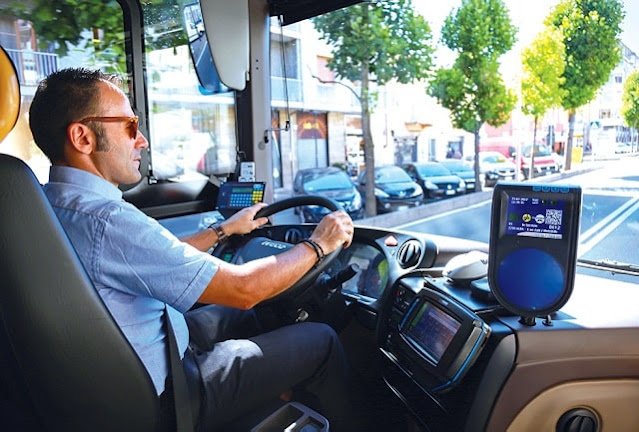The Metropolitan Transportation Authority (MTA) Police Department plays a critical role in maintaining safety and security across one of the largest public transportation systems in the world. From Long Island to New York City to parts of Connecticut, the MTA Police are responsible for protecting over 8.5 million riders daily across trains, buses, and transit infrastructure.

The MTA Police Exam is a key step in the recruitment process for becoming an MTA Police Officer. This civil service examination is designed to assess whether candidates possess the cognitive skills and foundational knowledge required for law enforcement work in a transit environment. Passing this exam is essential for moving on to further stages in the MTA Police hiring process.
This comprehensive guide covers everything you need to know about the MTA Police Exam, including eligibility requirements, what the job entails, application procedures, exam content, scoring, and what happens after you pass. Whether you’re just beginning your research or preparing to take the test, this article will help you navigate the process with confidence.
Read Also: MTA Bus Operator Exam: Everything You Need to Know
Job Description and Responsibilities of an MTA Police Officer
Becoming an MTA Police Officer is a serious commitment to public service. MTA Police Officers are tasked with ensuring the safety of passengers, employees, and infrastructure across multiple modes of transportation.
Key Responsibilities
- Patrolling: Officers patrol train stations, rail lines, yards, bus terminals, and MTA facilities.
- Law Enforcement: Enforcing state and local laws, including traffic, criminal, and transit regulations.
- Emergency Response: Responding to emergencies such as crimes in progress, medical incidents, and disasters.
- Counterterrorism & Homeland Security: Working closely with federal and state agencies to monitor and deter terrorist threats.
- Investigations: Conducting preliminary and follow-up investigations into crimes occurring within the MTA system.
- Community Engagement: Building trust and communication with daily commuters and MTA staff.
Specialized Units
MTA Police Officers may qualify for elite units, including:
- K-9 Unit
- Emergency Services Unit (ESU)
- Counterterrorism Division
- Detective Bureau
- Crisis Negotiation Unit
- Marine Unit
Work Conditions
- 24/7 shifts, including weekends and holidays
- Indoor and outdoor patrols in all weather
- High-pressure situations require calm, quick decision-making
Eligibility Requirements
To qualify for the MTA Police Exam and the position of MTA Police Officer, candidates must meet specific requirements:
Citizenship
Must be a United States citizen at the time of appointment.
Age Requirements
- Must be at least 21 years old at the time of appointment.
- Some applicants may take the exam at 19 years of age, but will not be appointed until they reach 21.
Education
- Must possess a high school diploma or GED.
- A higher education degree (Associate’s or Bachelor’s) may improve your application, but is not required.
Driver’s License
- Must have a valid, unrestricted driver’s license issued in the U.S.
- Must maintain a clean driving record.
- Background and Legal History
- No felony convictions.
- Must be of good moral character.
A thorough background investigation will be conducted, including employment history, criminal records, financial standing, and social media activity.
Physical and Medical Requirements
- Must pass a Department of Transportation (DOT) medical exam.
- Vision: 20/30 corrected in each eye.
- Hearing: Normal range required.
Residency
Residency in New York, New Jersey, or Connecticut is required within 90 days of appointment.
Overview of the Hiring Process
The MTA Police hiring process is thorough and highly competitive. It consists of multiple stages designed to assess a candidate’s readiness for a challenging law enforcement career.
Step-by-Step Hiring Process
1. Exam Registration: Apply for the MTA Police Exam.
2. Written Exam: Take and Pass the civil service written exam.
3. Physical Fitness Test: Assess endurance, strength, and flexibility.
4. Background Investigation: Review of criminal, employment, education, and financial history.
5. Psychological Evaluation: Assess mental health and stability.
6. Medical Examination: Confirm physical ability to perform the job.
7. Oral Interview: Conducted by police officials.
8. Academy Training: Recruits attend the MTA Police Academy for basic training.
Read Also: MTA Train Operator Exam Study: How To Become an Operator
Timeline
The entire process can take 6 months to over a year, depending on list placement and hiring needs.
MTA Police Exam Overview
The MTA Police Exam is a written civil service test intended to evaluate your cognitive and analytical abilities relevant to police work.
Purpose of the Exam
- Evaluate reasoning, problem-solving, decision-making, and observation skills
- Screen for readiness to enter law enforcement training
Format and Structure
- Multiple-choice questions
- Approximate duration: 2.5–3 hours
- Administered at test centres under supervision
Common Subjects Tested
1. Reading Comprehension – Ability to understand written procedures, laws, and policies
2. Written Communication – Grammar, vocabulary, sentence structure
3. Analytical Thinking – Detecting patterns, drawing logical conclusions
4. Situational Judgment – Evaluating scenarios and choosing appropriate actions
5. Memory & Observation – Recalling visual and written details
6. Mathematics – Basic arithmetic and problem-solving
6. Application and Registration Process
Where to Apply
- MTA official careers site: https://new.mta.info/careers
- NY State Civil Service exam page
How to Apply
1. Visit the application portal when the exam is open.
2. Fill out the online form with accurate details.
3. Upload necessary documents (ID, diploma, driver’s license).
4. Pay the exam fee.
Exam Fee and Waivers
- Average exam fee: $40–$60 (subject to change)
- Fee waivers are available for eligible individuals, including low-income applicants and veterans.
Key Dates
- Exam announcements are posted 4–6 weeks in advance
- The registration deadline typically closes 2–3 weeks before the test
Scoring and Ranking
Scoring
- Questions are weighted equally
- A score of 70 or higher is considered passing
- Candidates are ranked based on their score
Eligible List
- High scores lead to higher placement on the eligible list
- The list is used to call candidates for subsequent steps
- Lists are generally valid for 4 years
What is a Competitive Score?
- Scores above 85–90 are considered highly competitive
- The higher your score, the sooner you are likely to be contacted
After the Exam
Receiving Results
- Results are typically mailed or posted online within 8–12 weeks
Physical Fitness Test
Includes:
- 1.5-mile run
- Push-ups and sit-ups
- Vertical jump and flexibility test
Background Investigation
- Conducted by MTA investigators
Includes:
- Employment verification
- Credit history
- Criminal record check
- Home visit
Psychological Evaluation
- One-on-one interview with a licensed psychologist
- Written psychological assessment
Medical Exam
- DOT-standard exam, including drug screening
- Vision, hearing, cardiovascular, and orthopaedic checks
Oral Interview
- Conducted by MTA Police personnel
- Questions about motivation, background, and decision-making
Career Benefits and Salary Outlook
Salary
- Starting salary: $44,000–$54,000 (depending on experience)
- After 5 years: Up to $100,000+ with overtime
Benefits
- Comprehensive health and dental insurance
- Pension (Tier 6 Retirement System)
- Paid vacation, sick leave, and holidays
- Uniform allowance
- Tuition reimbursement
- Career Advancement
- Opportunities for promotion to:
- Sergeant
- Lieutenant
- Captain
Specialized assignments in K-9, Detective, Counterterrorism
Frequently Asked Questions (FAQs)
Can non-residents apply?
Yes, but you must establish residency in NY, NJ, or CT within 90 days of appointment.
How long is the eligibility list valid?
Typically up to 4 years.
Is previous law enforcement experience required?
No, but military or security experience can be beneficial.
What if I fail the exam?
You can retake it the next time it is offered.
Do I need to be physically fit before applying?
While not mandatory to apply, fitness is essential for passing the later stages.
Conclusion
The MTA Police Exam is a vital milestone on the path to a rewarding law enforcement career in the transit system. With thousands of daily riders and a complex transportation network to
Safeguard, MTA Police Officers are held to high standards of competence, discipline, and integrity.
By understanding the full scope of the exam and hiring process—and preparing diligently—you will be well-equipped to succeed. From eligibility and registration to exam preparation and post-exam steps, every phase is crucial.
For those willing to dedicate themselves to protecting millions and making New York’s transportation safer, the MTA Police Department offers not just a job, but a lifelong opportunity to serve, lead, and grow.
Helpful Resources:
- MTA Official Website: https://new.mta.info
- NY State Civil Service Exams: https://www.cs.ny.gov
- Physical Fitness Guidelines: Check official MTA hiring bulletins for updates
If you’re ready to protect New York’s vital transit network, start preparing today for the MTA Police Exam—and take the first step toward a meaningful and impactful career.

